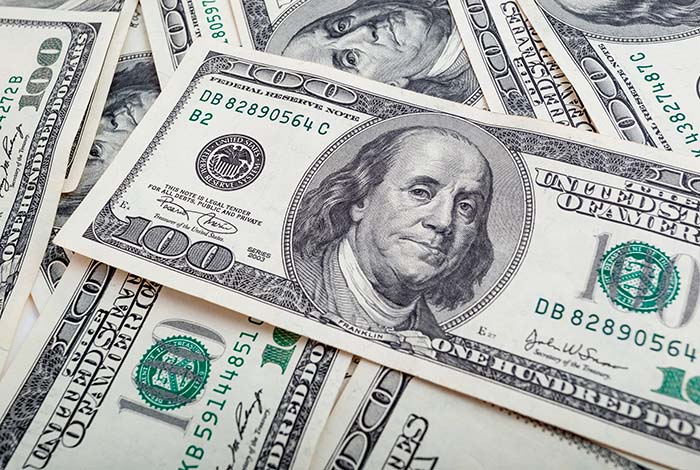

How much will the ECB raise interest rates?
High inflation has forced the European Central Bank to raise interest rates higher than expected. And more rate hikes are expected in the coming months. The question is how much they will increase and to what extent they will affect the Eurozone’s economic performance.
The new interest rates approved last week by the European Central Bank come into force today. Although the increase was expected to be 0.25%, the institution chaired by Christine Lagarde surprised the markets with a rise of 0.50%. This is the first increase in 11 years and the largest since 2000.
The ECB Governing Council’s decision affects the three key interest rates, bringing the rate on the main refinancing operations to 0.50 %, the marginal lending facility to 0.75 % and the deposit facility to 0.00 %.
With this decision, the ECB joins the majority of central banks in the world, which in recent months have already taken the step of increasing their interest rates to combat rising prices. The dismal inflation data, which in June reached 8.6% in the eurozone, have pushed the ECB to make a larger increase than expected. Also the sharp rise in interest rates in countries such as the US, which has raised rates three times since May, and the weakness of the euro have influenced the decision.
How will interest rates evolve?
Everything indicates that interest rates will continue to rise in the coming months, although the percentage will be decided “meeting by meeting”, according to the European banking regulator. The aim is to return to rates of “2% inflation in the medium term”.
Analysts speculate that the interest rate range could be between 1% and 3% next year. As a reference, the governor of the Bank of France, François Villeroy de Galhau, recently estimated that it could be between 1% and 2%.
In any case, the ECB seems determined to prioritise the containment of inflation, even if the rise in interest rates ends up generating a recession in some eurozone countries. In fact, there are already those who consider that provoking a recession is the only realistic formula for bringing inflation back to reasonable levels.
It should be borne in mind that higher interest rates will make borrowing more expensive for both individuals (including mortgages) and companies. It should therefore reduce private consumption and corporate investments, which will cool the economy.
For the time being, all indications are that the next rate hike will take place in September, when the ECB Governing Council meets again. Beyond that date, Lagarde only indicated that, “if we see inflation stabilising at 2% over the medium term, a progressive further normalisation of interest rates towards a neutral rate will be appropriate”.
Risk premiums under scrutiny
The first to suffer from higher interest rates are the risk premia on the debt of the most vulnerable eurozone countries: Greece, Italy, Spain and Portugal. Faced with the possibility of an economic recession triggered by the rise in interest rates, investors are increasingly reluctant to buy the debt of the countries with the weakest economies.
For this reason, the ECB has accompanied the announcement of the rate hike with that of the creation of the TTIP [Instrument for the Protection of the Transmission of Monetary Policy], a mechanism to prevent the risk premiums of peripheral countries from soaring and the financial fragmentation of the euro zone from occurring. We cannot forget the unstable situation in Italy, for example, with the resignation a few days ago of Mario Draghi as prime minister and the call for elections.
The ECB states that this TPI “will be an addition to the Governing Council’s toolkit, and can be activated to counter unwarranted, disorderly market dynamics that pose a serious threat to the transmission of monetary policy across the euro area. It adds that the magnitude of TPI purchases will depend “on the severity of the risks facing policy transmission”. In any case, the ECB intends this tool to be a last resort, as the first line of defence will be the “flexible” reinvestment of the sovereign bonds it now holds in its portfolio.
Moreover, this intervention will not be without conditions, as the “rescued” countries will have to comply with the commitments and reforms set by the Recovery Fund and the various EU recommendations.
If you want to discover the best option to protect your savings, enter Preciosos 11Onze. We will help you buy at the best price the safe-haven asset par excellence: physical gold.
Leave a Reply
You must be logged in to post a comment.





Gràcies
Gràcies a tu, Joan!!!
👍
Gràcies, Manel!!!
Aquesta pujada també ha de portar una pujada dels tipus d’nterès als dipòsits a terminis?
Aquest ja és un altre tema i cada entitat bancaria farà el que li sembli segons la seva política comercial i empresarial. Moltes gràcies pel teu comentari, Francesc!!!
Vejam cap on anirà tot.
L” augment dels interessos a les hipoteques amb revisió el juliol ja pica.
Pica pica de lo ràpida i sobtada que ha sigut. Esperem poder-nos adaptar progressivament al què ens arriba Mercé. Gràcies!